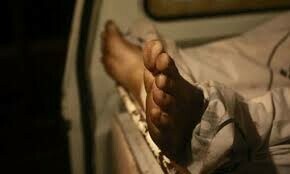DERA GHAZI KHAN: The decline in literary spaces and loss of reading culture in Dera Ghazi Khan city has played a role in promoting intolerant behaviour of its people as is evident from day to day life.
The city once used to boast of at least four vibrant book centres where the readers could find literature or books on diverse topics beyond the textbooks. These centres played a vital role in fostering intellectual curiosity and shaping moderate and progressive attitudes among the residents.
Dabistan-e-Sahar, one of these bookshops, was founded by the late Raees Adeem. It stood out as a beacon of literary culture. Adeem was not only a pioneer in publishing Seraiki poetry by the local poets but was also a bold advocate of freedom of thought. His book centre played an active role in nurturing the culture of critical thinking during Gen Ziaul Haq’s oppressive dictatorship when certain books were banned or were made inaccessible.
The Paramount News Corner, originally run by a man known as Chachu Ramazan, is now being managed by his son Shamim Ahmed. It offered a range of books alongside newspapers. Other notable names included Allah Bukhsh’s Book Centre and Nasir Book Centre. The latter aimed at serving the community but couldn’t survive the growing lure of social media and digital distractions.
In addition to these book centres, the city was home to several libraries that were integral to its intellectual life. The Public Library of Company Bagh and the National Centre Library offered readers a world of books. The Postgraduate College library, now a part of Ghazi University, mandated student memberships. Small private libraries also flourished, offering books on rent and meeting the literary needs of many.
However, with the advent of cell phones and the rise of social media, these literary spaces have dwindled.
Shamim Ahmed, the owner of Paramount News Corner, attributes the trend to the increasing use of smartphones.
“New technology and smartphones have significantly reduced public interest in books, periodicals and digests. Circulation of daily newspapers is also decreasing steadily. Youngsters now form a minority among book buyers, whereas his father used to tell him that in the 1970s and 1980s, people from all walks of life irrespective gender used to visit the book stall to buy books, periodicals and digests of their own choice,” he says while responding to a query about the decline in the sale of books other than textbooks.
At present, Maktaba Tameer-e-Insaniat in Block B, Maktaba Zakiria in Block 10 and book centres established in front of Imambargah Rizvia as well as adjacent to it are fulfilling the reading requirements of the readers but at a limited scale.
The proprietor of Maktaba Zakaria points out higher prices of books as another reason for the decline in reading, explaining that the rising cost of paper has made books unaffordable for working classes. He also blames the internet for contributing to the reduced sales of books.
Sabir Jarwar, a teacher of English literature at the Govt Graduate College, argues that cost is not the only reason, expressing concerns at the disappearance of book centres in the city while the mushroom growth of fast-food outlets and eateries has reached alarming levels. He notes that the trend reflects more spending by people on food and unhealthy habits, adversely affecting both their physical and mental well-being.
Today, the once-thriving Public Library of Company Bagh stands neglected, its shelves are gathering dust. The National Centre Library has closed its doors and the library of the Postgraduate College has been absorbed into Ghazi University, losing its independent identity. Private libraries that once rented out books have vanished, leaving no alternative for the book lovers.
The Gymkhana has attempted to fill the gap with a small library, but its space and resources are insufficient. An e-library established at the stadium also failed to attract readers, reflecting the lack of interest of the citizens in physical and digital literary spaces.
Mushairas were a regular feature of the city. There were literary bazms or groups led by poets and writers that used to hold functions regularly to maintain and improve the aesthetic sense of the dwellers of the city.
At present, DGK Arts Council head Naeem Tufail is trying to fill a large gap created by the decline of literary activities but the decline of these centres and libraries mark a significant loss for our city.
Once a community that cherished literature and intellectual growth, the residents of Dera Ghazi Khan are now left with limited options to nurture the minds of future generations. The need for revitalising public libraries and more vibrant literary spaces now is more urgent than ever as they remain essential for fostering critical thinking and preserving cultural heritage.
Published in Dawn, January 7th, 2025














































Dear visitor, the comments section is undergoing an overhaul and will return soon.